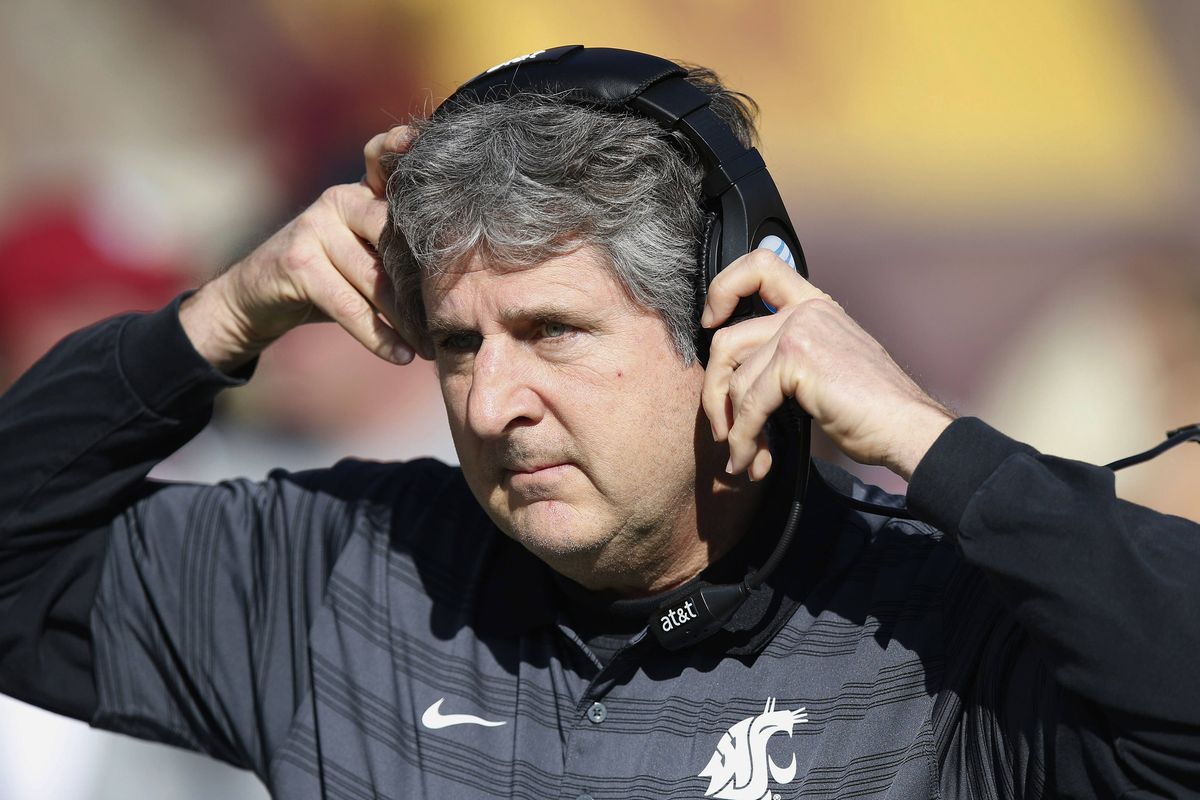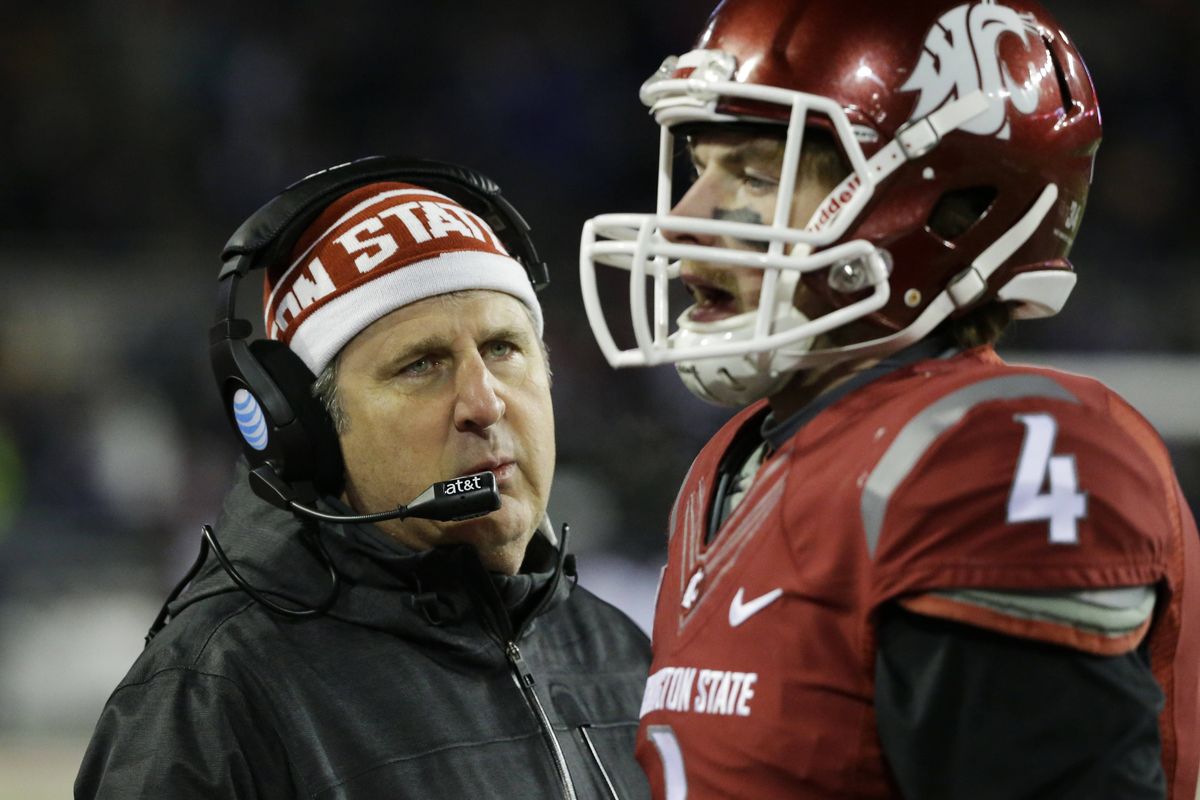NCAA studying rule to allow electronic communication between coaches, players on field
Mike Leach may be one of the least affected if the NCAA adopts a ‘communication’ rule. (Associated Press)
PULLMAN – Few NCAA football coaches are likely to be less affected by a proposed NCAA rule change that would allow coaches to communicate electronically with players on the field than Mike Leach, but Washington State’s coach still says he’s supportive of the move.
The NCAA football rules committee is trying to experiment with wireless communication, similar to the NFL where the quarterback and one defensive player have devices that allow them to communicate with coaches until there are 15 seconds left on the play clock.
“I’ve always thought that the voice in the helmet’s good,” Leach said. “That’s the one thing about the NFL game that’s always been simpler is there is a lot quicker, immediate information.”
There is also the potential for helmet cameras that could deliver video from a different viewpoint to the coaches and could become a part of the television broadcast.
The NCAA says that several conferences have proposed experimenting with these rules and Air Force coach Troy Calhoun, the committee chairperson, says that the technology could be used during select bowl games in the upcoming season.
“Any ways that we can improve communication,” Calhoun said. “This far into the 21st century to have the technology that we know is available, we want to make sure it’s molded in a way which is very helpful in college football without creating a huge imbalance when it’s time to go compete.”
Leach’s offense is predicated on the assumption that the quarterback has a better view of the defense than the coaches and he gives his passers a great deal of autonomy. As such, he likely wouldn’t have much more to say to the quarterback given the opportunity, except maybe tell him to check into a few more run plays.
“I don’t think it would change what we do hardly at all outside of the fact that I’d be able to throw an extra detail into the quarterback periodically,” Leach said. “Of course, there would be some coaches that would say too much and they’d probably be better off without those things.”
The committee is also proposing to change the ineligible-man-downfield rule from three yards past the line of scrimmage to one yard past the line of scrimmage, making it harder for option offenses to confuse defenses that are unsure if a play is going to be a run or a pass.
Leach suggested that such plays are also difficult for officials to monitor as well.
Other proposals include a 15-yard unsportsmanlike foul called on players who pull opponents off piles and to make players with equipment issues such as untucked jerseys or eye-black markings leave the field until they are fixed.
Leach dismisses these proposals as overlegislating, although he does like a rule that would allow instant replay on onside-kick plays.

